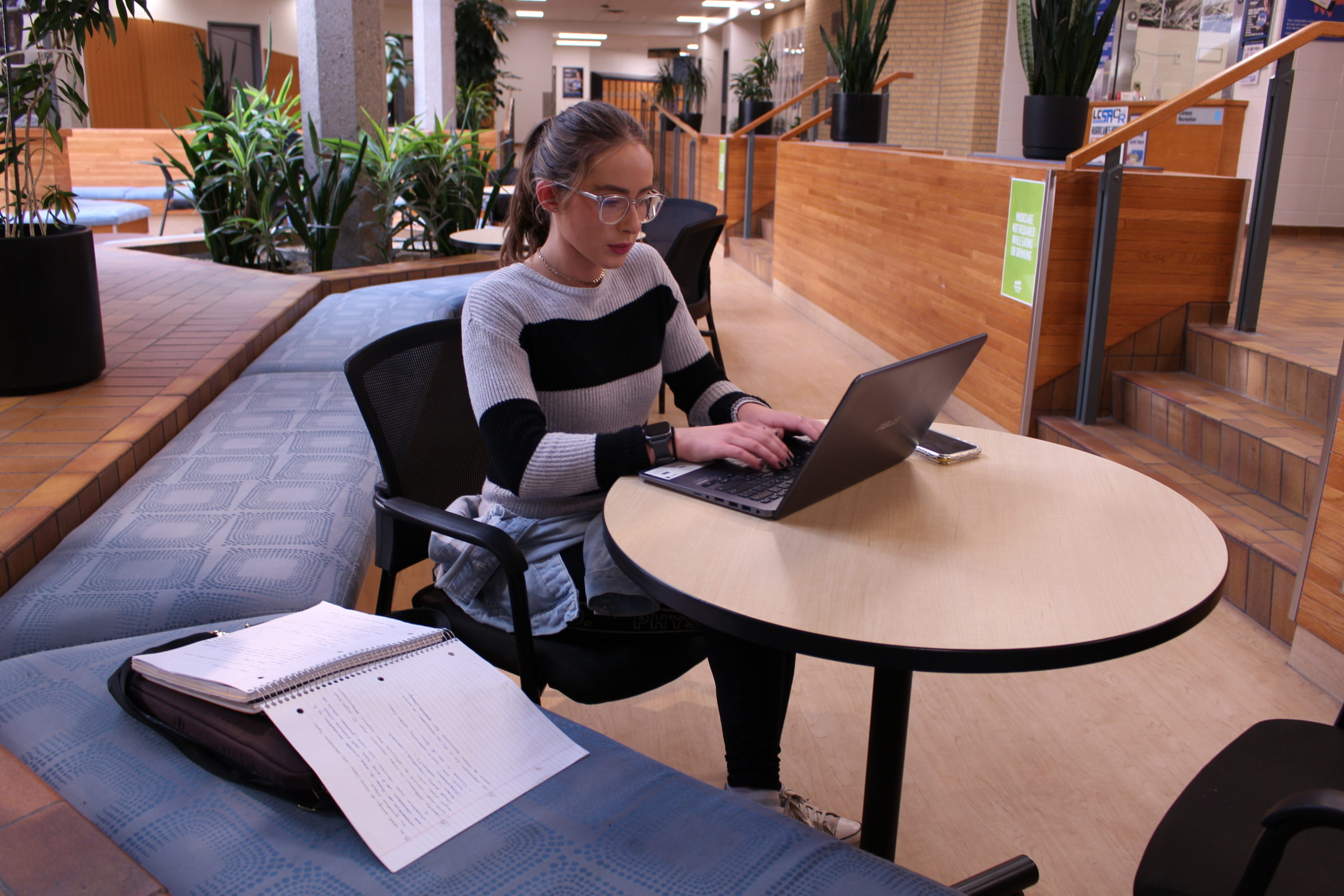Second year Criminal Justice student Nancy Fehr studies up in Centre Core of the Lethbridge College.
College students navigate their first in-person semester back on campus as they’re balancing their mental health and education.
Mental health is important to maintain in everyone’s life, and this is especially important for students going through college.
Students at the Lethbridge College are over one month into the fall semester and a lot of those students are straight out of high school.
Lucas Selk is a first-year Digital Communications and Media student who lives on his own. He explains his mental is different compared to when he was in high school because it’s a new environment.
“I have more responsibilities to take of that are more than school, so I feel like that’s definitely put on the whole stressful part of it,” says Selk.
He does have ways of dealing with this new stress such as watching television, socializing with friends, and listening to music. Although Selk can pick his mental health back up, he finds it hard to balance it.
“If I have more school work, I’ll kind of focus on that more than my mental health. I kind of let my mental health slip away sometimes,” says Selk.

Lethbridge College’s student support specialist Steve Johnson notices the biggest challenges for students when it comes to academics and their mental health are stress and anxiety.
“I think from any year that I’ve seen, however many years I’ve been here, it’s always been the thing that students talk about the most,” says Johnson.
He further explains that over the last few years, student surveys have marked stress levels at about 42 per cent and anxiety levels at about 35 per cent.
Although the things college students are stressed about may be different, such as switching from online school to in-person classes, Johnson thinks the stress level is relatively the same. Nevertheless, it’s important to look after one’s mental health.
“Maintaining good mental well-being is very important to kind of manage that stress and manage anxiety when it comes to school,” says Johnson.
A person’s mental health can affect everything in life and Johnson says, “if you look at the big picture it’s important, really important, to not only take care of your mental health, but really take care of all the aspects of health together.”
For student stress, he states there are a lot of different positive coping skills and activities for students to do. Such activities include exercise, listening to music, socializing and playing video games.
As long as it’s not excessive, Johnson says anything that’s fun, relaxing, and gives you a break from school can help relieve some stress.
He mentions finding a balance between one’s education and mental health and choosing activities to help, starts with awareness.
“Being aware of what you need and then taking those opportunities and making it a priority is, I think, a good way to look at that balance,” says Johnson.
Johnson ensures you need to make the intentional effort to do things to relieve stress. Through this a student can balance work, school and other aspects of their life.



